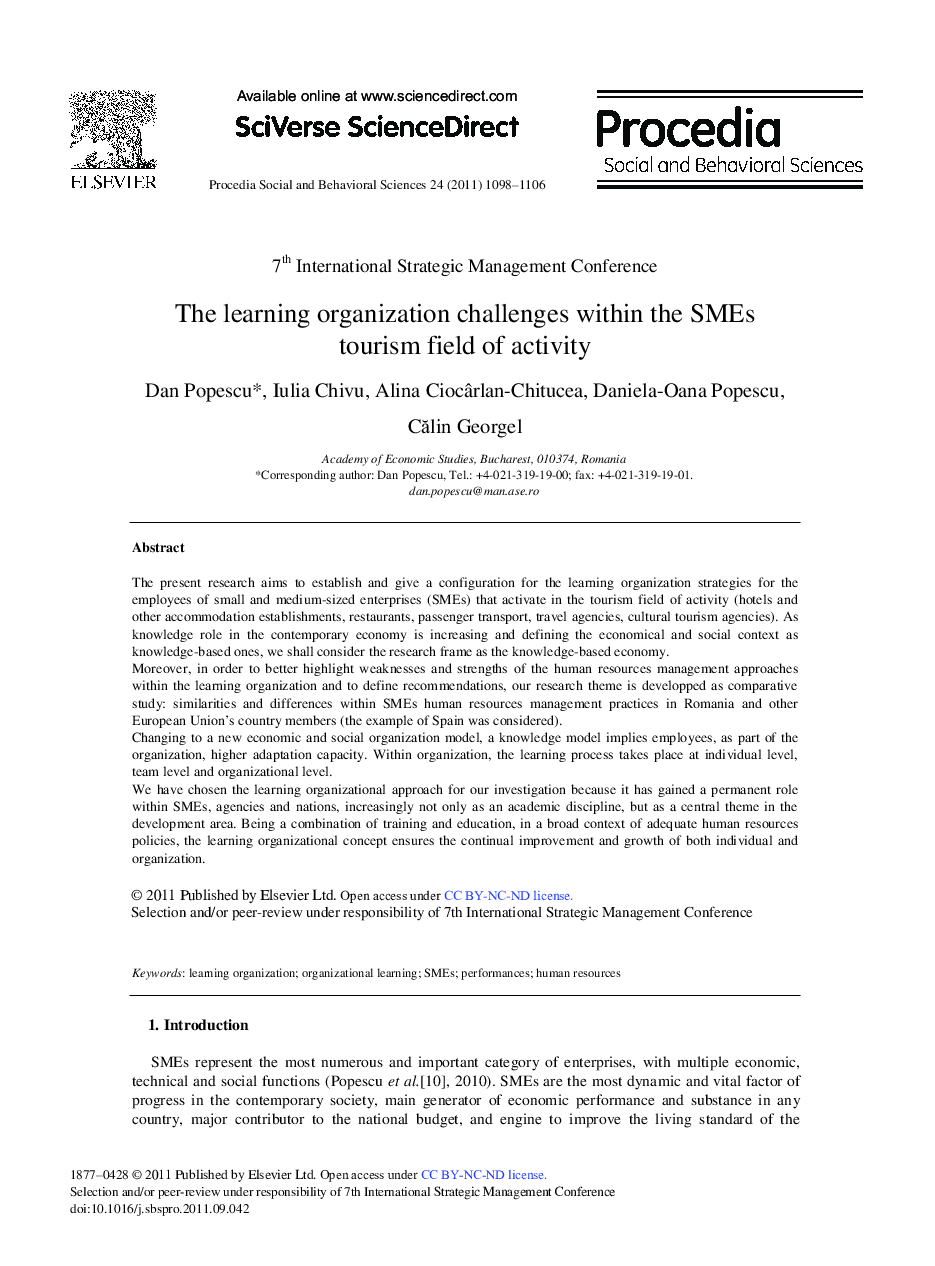| Article ID | Journal | Published Year | Pages | File Type |
|---|---|---|---|---|
| 1123575 | Procedia - Social and Behavioral Sciences | 2011 | 9 Pages |
The present research aims to establish and give a configuration for the learning organization strategies for the employees of small and medium-sized enterprises (SMEs) that activate in the tourism field of activity (hotels and other accommodation establishments, restaurants, passenger transport, travel agencies, cultural tourism agencies). As knowledge role in the contemporary economy is increasing and defining the economical and social context as knowledge-based ones, we shall consider the research frame as the knowledge-based economy. Moreover, in order to better highlight weaknesses and strengths of the human resources management approaches within the learning organization and to define recommendations, our research theme is developped as comparative study: similarities and differences within SMEs human resources management practices in Romania and other European Union's country members (the example of Spain was considered). Changing to a new economic and social organization model, a knowledge model implies employees, as part of the organization, higher adaptation capacity. Within organization, the learning process takes place at individual level, team level and organizational level. We have chosen the learning organizational approach for our investigation because it has gained a permanent role within SMEs, agencies and nations, increasingly not only as an academic discipline, but as a central theme in the development area. Being a combination of training and education, in a broad context of adequate human resources policies, the learning organizational concept ensures the continual improvement and growth of both individual and organization.
